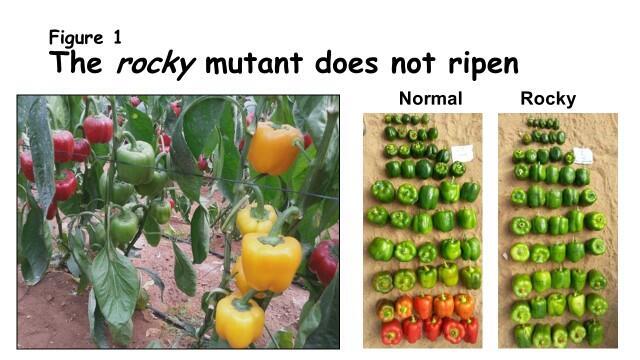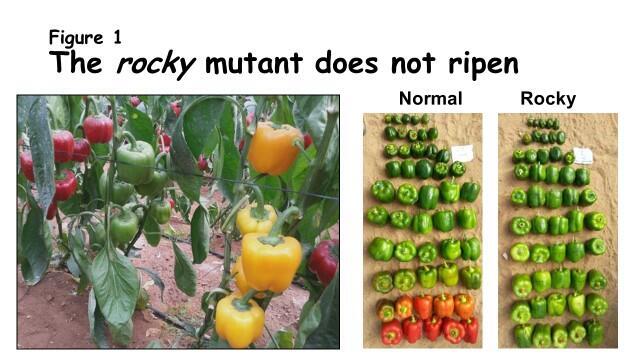Ynet | 13.03.22 | 08:02
According to researchers in the Faculty of Agriculture at the Hebrew University, the new variety maintains the quality of the fruit and prolongs the harvesting season by two months, which will increase the profitability of crops.
For the past 30 years, researchers at the Institute of Plant Sciences at the Faculty of Agriculture, Food and Environment at the Hebrew University have been cultivating pepper varieties intended for growing in greenhouses without heating or cooling. The project has created a large number of varieties that are traded today around the world. About 15 years ago, a mutation of the pepper plant was discovered, in which the fruit does not ripen at all and even becomes more solid over time – which the institute’s researchers called “Rocky”.
As part of a genetic-physiological study in the laboratory of Dr. Yonatan Elkind, from the Institute of Plant Sciences in the Faculty of Agriculture, former doctoral student Dr. Noyet Hever and current Reut Deborah-Levy, and the master student Alex Alexbanko, studied the genetics and psychology of the Rocky gene. The cultivation team, which also included Idit Glick and Dr. Tamar Schur-Pombarov, applied the mutation and cultivated new varieties of pepper, in which the ripe fruit is preserved for a long time when attached to the plant.
Pepper varieties grown in passive growing houses that have been sold in recent years are greatly affected by the climate, so there are concentrated ripening waves of the fruit in hot periods and shortages of fruit in cold periods. This phenomenon has recently intensified in light of global warming leading to a more extreme climate. Following cultivation work, in collaboration with the Pilpel-Seeds, which develops and market the cultivated pepper varieties in the faculty, the cultivation team was able to cultivate varieties that contain the mutation.
The new development allows farmers to “store” ripe fruit on the plant, which maintains its freshness and allows the farmer to regulate the harvest, postpone it when there is excess fruit and then pick it when there is a shortage. Thus, it effect the profitability of the farmer, increases and stabilizes the supply. In addition, picking a lot of fruit at the same time is more efficient and saves labor. “We found that in the heterozygous state the mutation, ‘Rocky’, dramatically increases the ability to store ripe fruit on the pepper plant, while maintaining its quality,” explains Dr. Elkind.
“Farmers we work with in the Arava region and grow the new species, are already reporting efficacy”, Dr. Elkind added. “This year, a yellow variety – Oranit, which is dozens of dunams in the Arava, was sold mainly. “The new variety allowed growers to pick the fruit when there was demand, and the harvesting was also more efficient. Flexibility in harvesting, streamlining the harvesting and prolonging the harvesting season are expected to improve the profitability of crops, and revolutionize the pepper varieties like the effect of the application of anti-ripening genes in tomatoes, which were cultivated in the faculty 40 years ago.” The researchers explain that in the new varieties that contain the “rocky” gene, the first harvest can be carried out about two months or more after the onset of ripening.


